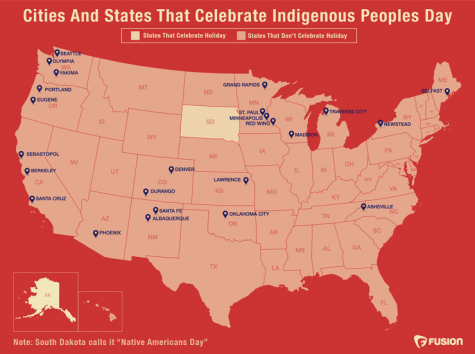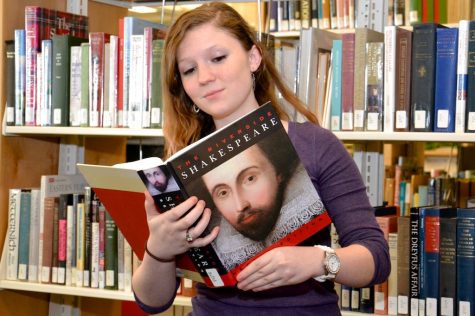Colorado’s Indigenous People Win an Important Victory
Since 1907, Colorado has recognized the second Monday of October as Columbus Day; celebrating the anniversary of Columbus’ arrival in America. President Franklin D. Roosevelt proclaimed the day a national holiday in 1937, in an effort to honor Columbus’ achievements and to celebrate Italian-American heritage.
To many, this is considered a happy occasion; inciting days off and those huge department store sales. But to others, the day celebrates an evil man who raped and murdered when he came to America.
Digital content provider WatchCut asked Native Americans what words they associated with Christopher Columbus and what they thought of him and the responses were all similar:
“He’s not a good figure to a native community.”
“He was the start to a lot of pain.”
“The atrocities committed, just so grotesque, and the scars are still felt today.”




Protests regarding Columbus Day started over two decades ago in Denver, when Native American groups protested the plans to resurrect the annual Columbus Day parade, calling it wrong to celebrate genocide. Since then, Columbus Day protests became a routine theme in Denver. Still the parade has marched on and with it, brought even greater division between the groups.
Some Italian-Americans blame the ruin of longstanding friendships and the incorrect history they were taught back in grade school. In addition, aggrieved Native Americans still loathe the moment in 1992 when a parade volunteer yelled at Indian activist Glenn Morris: “This isn’t your country anymore; this is our country now, so get with the program.”

The fight between the two groups reached a peak in 2007, when a record 88 arrests sparked a change in Denver; dwindling both the protests and parade participation in the interest of making a switch. The switch, in the protester’s minds, was to denounce the parade, end the celebration and in extension to that: end the holiday all together.
And end it they did.
Monday, October 10, 2016, marked the first celebration of Indigenous Peoples’ Day. The Denver City Council unanimously passed a resolution marking the second Monday of October as Indigenous Peoples’ Day. Denver isn’t the only city with this dramatic new change; cities in Vermont, Arizona, California and more are joining the support against the Columbus Day holiday.

But they aren’t stopping there. Protesters say they won’t quit until all cities in the United States celebrate Indigenous Peoples’ Day. They want to change the conversation about what really happened in 1492 and how it has impacted native communities. As America focuses on this healing holiday, they hope we become better global citizens aware of the struggles and experiences of people and groups other than ourselves.




Joseph Vincent Scelsa • Oct 24, 2016 at 7:14 am
I believe in “Constructive Pluralism”, were each culture gets to honor their own culture and share their pride and achievements with other cultures as well. Pitting one group against another will only disunite America. Yes each group should show respect to each other by sharing there accomplishments and achievements , Native Americans included of course, but not at the expense of any other group. As I recall November is Native American Month why not honor Native Americans with their own celebration of pride at that time.
It is important to remember no matter how we got here we are all share the same continent now.
Lets honor each.
Dr. Joseph V. Scelsa,
Founder and President of the Italian American Museum in NYC